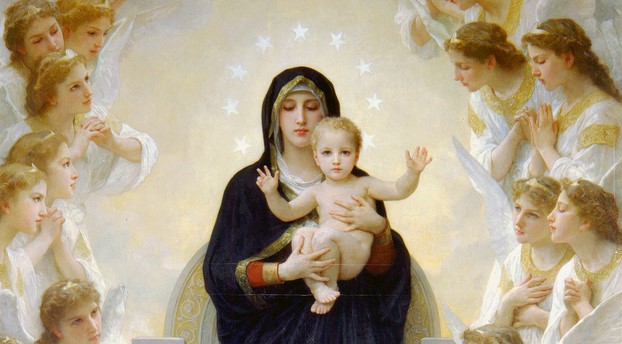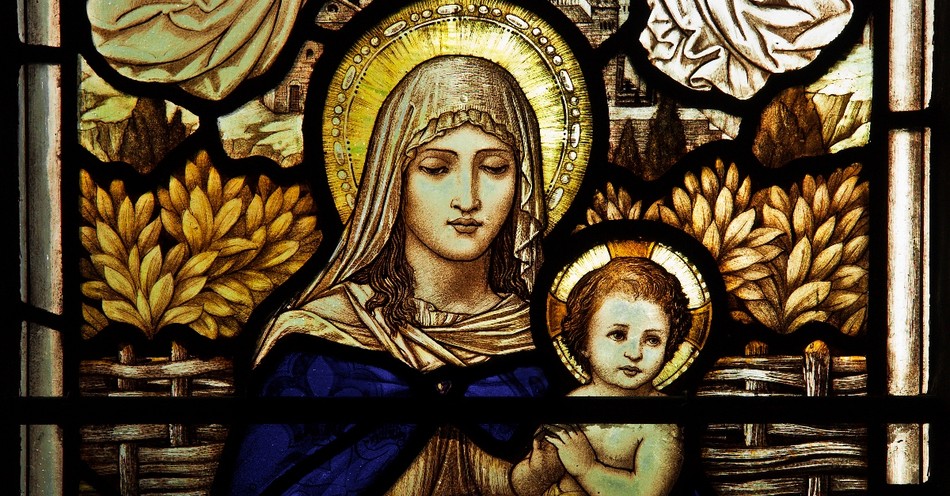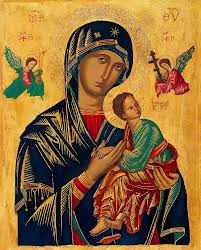Article Title: Mary, Mother of God and Intercessor: A Framework for Navigating Life's Adversities
Introduction: This article explores the multifaceted role of Mary, the Mother of God, within Catholic theology and its practical application in overcoming life's challenges. We will analyze Mary's significance through key theological concepts, examining her influence on faith, spiritual guidance, and the development of personal resilience. The concepts of intercession, maternal guidance, and the embodiment of virtues will be central to this analysis, demonstrating their relevance to contemporary life experiences.
1. Mary: The Theological Foundation of Intercession: Mary's unique position as the Mother of Jesus Christ is the cornerstone of Catholic Marian devotion. This status, established through biblical narratives and theological interpretation, establishes her as a potent intercessor. The concept of intercession, within the framework of Catholic theology, posits Mary's ability to present the prayers and petitions of believers to God. This is not a negation of Christ's unique mediatory role, but rather an understanding of Mary’s role in the divine economy of salvation, a role rooted in her profound relationship with Christ, exemplified in the events of the Gospels. This resonates with the sociological concept of social capital, whereby individuals leverage their relationships (in this case, Mary's relationship with God) to access resources and support for others.
2. Mary as a Model of Virtue and Resilience: Mary's life, as depicted in the Gospels and subsequent theological reflection, serves as a paradigm of virtues central to Christian living: humility, faith, obedience, and perseverance. Drawing upon virtue ethics, we can see Mary's unwavering faith amidst life's trials, from the annunciation to the crucifixion, as a model for cultivating resilience. This model is particularly relevant in contemporary society, where individuals face numerous stressors and challenges requiring the development of coping mechanisms grounded in spiritual and ethical principles. Mary's actions provide a concrete example of how to navigate difficult situations with faith, hope, and charity.
3. Marian Devotion and Spiritual Practices: The Rosary, a quintessential Marian devotion, provides a framework for contemplative prayer, focusing on the mysteries of Christ's life and Mary's role within them. This practice aligns with contemplative traditions that emphasize mindfulness and self-reflection, fostering spiritual growth and emotional regulation. Furthermore, the act of praying the Rosary facilitates the development of a sustained relationship with God through Mary, bolstering faith and strengthening coping mechanisms during times of adversity. The effectiveness of this practice can be linked to cognitive-behavioral therapy (CBT) principles that emphasize the power of positive affirmations and repetitive practices to shape one's emotional and psychological state.
4. Marian Apparitions and Their Contemporary Significance: Documented Marian apparitions, such as those at Lourdes and Fatima, offer significant insight into Mary's continued role as a spiritual guide. These events, often associated with messages of repentance, hope, and prayer, function as powerful reminders of the divine presence and Mary's maternal concern for humanity. Their continuing relevance lies in their capacity to foster spiritual renewal and community building within the Catholic faith, thereby increasing the psychological and emotional support available to believers. From a sociological perspective, these apparitions strengthen social cohesion and collective identity within Catholic communities.
5. Theological Doctrines and Their Implications: The dogmas of the Immaculate Conception and the Assumption of Mary provide a deeper understanding of her unique role in salvation history. These doctrines, rooted in centuries of theological reflection, highlight Mary's complete freedom from original sin and her ultimate glorification in heaven. The implications are not just theological but also offer profound spiritual insight for believers, emphasizing the possibility of holiness and the ultimate triumph of good over evil. These beliefs serve as a powerful source of hope and inspiration, supporting the belief that enduring suffering can lead to spiritual growth and eternal life.
6. Mary as Spiritual Mother and Guide: The concept of Mary as spiritual mother transcends a purely literal interpretation, representing a deeply significant relationship between the believer and God. This relationship is fostered through prayer, imitation of Mary's virtues, and a commitment to following Christ’s teachings. The maternal image of Mary offers solace and comfort, promoting a sense of belonging and unconditional love that can strengthen spiritual resilience. This concept aligns with attachment theory, which emphasizes the importance of secure attachments for emotional well-being and personal growth.
Conclusions and Recommendations: This analysis demonstrates the profound impact of Mary's role within Catholic theology on fostering spiritual growth and resilience. Mary's intercession, her example of virtue, and her representation as a loving mother provide a powerful framework for navigating life's challenges. Further research could explore the psychological and sociological implications of Marian devotion, examining its effects on mental health, community cohesion, and the development of coping mechanisms in diverse populations. The application of interdisciplinary approaches, combining theological analysis with psychological and sociological perspectives, would enhance our understanding of Mary's enduring influence on believers.
Reader Pool: How might a deeper understanding of Mary’s role in Catholic theology inform the development of more effective pastoral care strategies for individuals facing personal crises?
```





